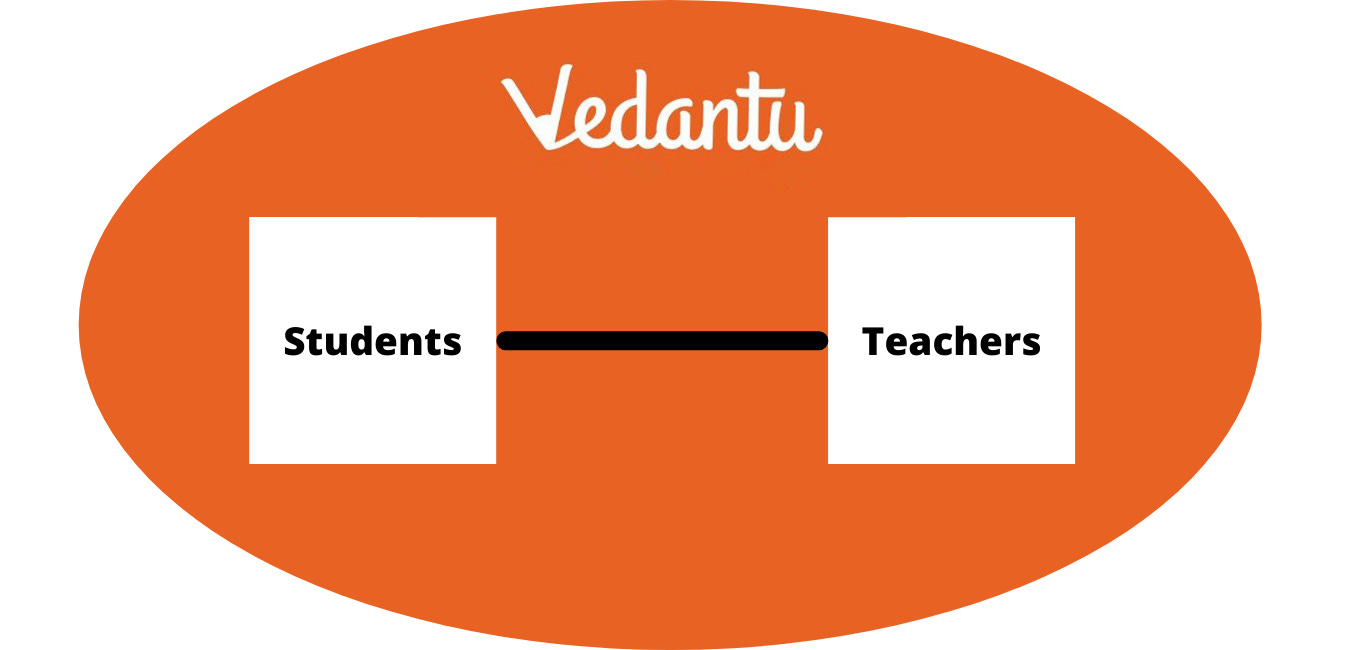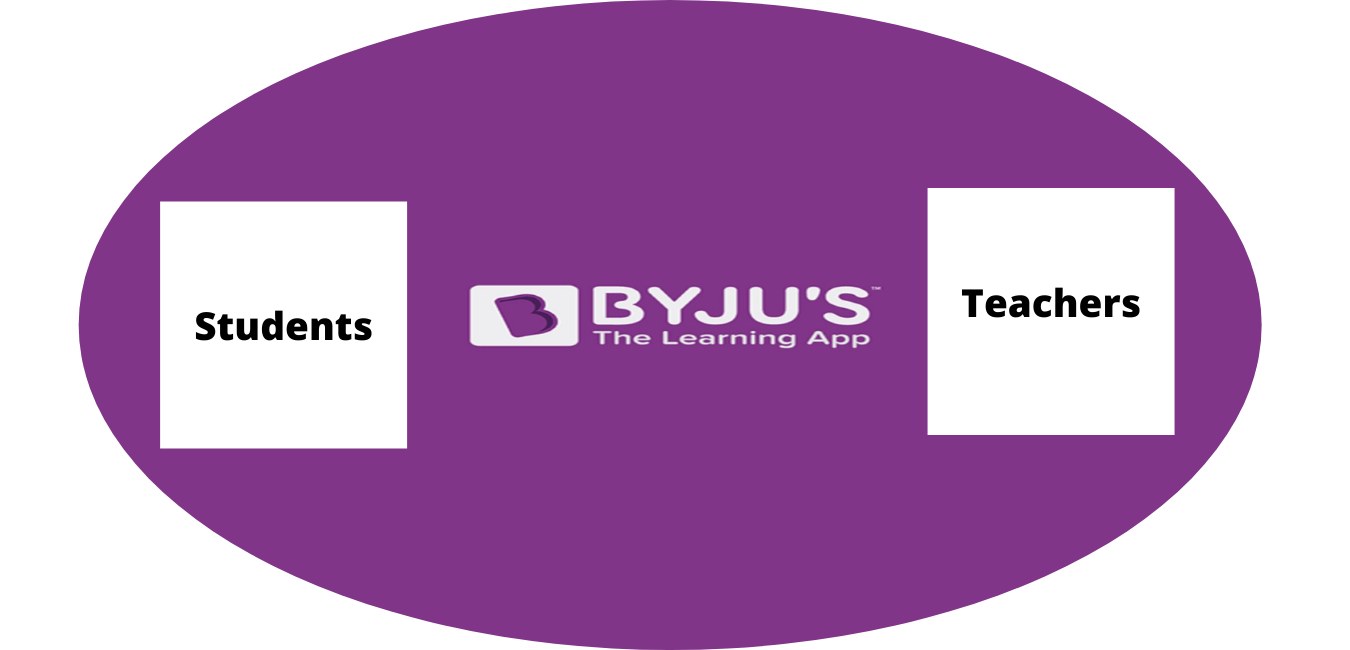Today’s newsletter is sponsored by:
After seeing the success of Zomato and Freshworks IPO, people have finally realized the potential of Indian startups. Everyone now wants to find out the next Zomato and Freshworks so that they can invest in it. But if you wait for the IPO to invest in a startup, you’ll be too late. Investors get 95% of the gains before the IPO. To get blockbuster returns, you have to angel invest in startups.
Enter Tyke.
Tyke makes angel investing super easy. Just do your KYC, and you can start investing in your fav startups. Plus, the minimum investment amount isn't a million dollars, just Rs.5000!
This means you can invest 5000 in the next Byjus or Paytm or Ola and watch it grow into millions! Isn't that amazing?
Byjus is the king of the K12 education market. They have so many users, such a strong salesforce, and they keep acquiring all the competitors. It seems that no startup can compete with Byjus in the K12 market.
Yet, there is a startup which is doing is just that. It's called Vedantu, and last month, it turned into India's 27th unicorn.
On the outside, Byju's and Vedantu look the same: online classes for students.
But look deeper, and you'll see an important difference between them. This difference is the reason why Vedantu is competing so successfully against Byjus. In today's newsletter, I'll tell you:
How Vedantu's origins defined its approach to education
Byjus approach to education is completely opposite
How Vedantu's approach to education is better than Byjus
(I'm sorry I can't give a summary of today's newsletter. You'll have to read it fully if you want to know how Vedantu is silently winning against Byjus)
🕹How Vedantu's origins defined its approach to education:
The story of Vedantu begins in 2006 in a small town in Punjab called Barnala. 4 friends: Vamsi Krishna, Pulkit Jain, Anand Prakash, and Saurabh Saxena were bored of their jobs. So they started an IIT-JEE coaching called Lakshya Institute.
Of the 35 children they coached, 11 cleared the IIT entrance. Motivated by this success, they decided to help students across the country.
By 2011, Lakshya Institute had expanded to Patiala, Bathinda, Chandigarh, and Panchkula and had 2500+ students and 250 teachers. It was recording solid profits every year. But there was a problem:
The coaching business wasn't scalable.
The 4 friends had big dreams: they wanted to expand Lakshya Institute to the whole country. But opening a coaching center in every city was expensive. Very expensive.
In startup terms, this is called a scalability problem. The best startups are scalable: it doesn't cost much to open them in new locations. Think of Facebook: after it had found success in Harvard, expanding it to more colleges didn't take a lot of money, just extra server costs. Same with Google. After they had found success at Stanford, expanding to silicon valley didn't take a lot of money.
Lakshya Institute wasn't scalable. So they sold Lakshya to Mahesh Tutorials in 2012 and started thinking of how to scale the coaching business.
No need to create suspense here, you already know the solution is online education😂 But remember, at that time, the solution wasn't so obvious. It took these guys 2 years to figure out that online education was the solution.
As Vamsi Krishna told YourStory:
However, building scale of this nature would have been a huge challenge if we restricted ourselves to offline coaching. We knew that online was the only way to reach students pan India
Thus, on October 26, 2014, Vedantu was born.
But the founders hadn't forgotten their experience with Lakshya Institute. They knew that traditional coaching was so effective because it placed a lot of emphasis on the student-teacher bond. Thus, the student-teacher bond became Vedantu's mantra.
All their innovations had a single goal: strengthen this bond.
👉 They used technology to scale and offer online classes to students across the country.
👉 They could offer online classes at cheap prices because they didn't have to waste money on building coaching centers.
👉 In 2019, they introduced a technology called WAVE(Whiteboard Audio Video Environment) to make online classes more interactive and fun for students. WAVE uses AI/ML to evaluate students on 70 factors(like facial expressions, clicks, etc). Teachers can use these insights from WAVE to know if students learned the concepts or if revision is required. Since the launch of WAVE, Vedantu's engagement rate has shot up to more than 90%.
👉 Vedantu offers video sessions that support even low internet bandwidth.
👉 Powerful learning management tools and a holistic training approach for teachers.
👉 Vedantu has partnerships with Airtel and Tata Sky to offer its courses on their respective satellite cable TVs, offers a large library of lessons at no cost to students.
Long story short, Vedantu had hit a sweet spot between maintaining a student-teacher relationship and also scaling up the model by doing one simple thing- taking it online, instead of offline.
🕹Byjus approach to education is completely opposite:
After reading about Vedantu, you might think it's very similar to Byju's. I mean they also offer courses for students from classes 4-12 as Vedantu does. What's the difference really?
Turns out, both the models have a fine but important difference
You see, Byju's uses technology to deliver a "personalized learning experience" to every student. What does this mean?
Suppose you are learning class 6th Maths. You'll start watching the videos and answer the quizzes in between the lessons. The app will record the difficulty of the lesson and quiz, how much time you took to answer the questions, your accuracy, etc. Based on these parameters, the app will decide whether to move on to the next topic or review the current topic.
From PCMag:
When a child interacts with videos and goes through the learning journey, answer the practice questions, the app generates a unique profile. In fact, my learning journey to study Newton's second law won't be same as that of someone who has a better understanding of the concept. [...] If someone experienced difficulty in learning the concept of momentum in physics, then the app will make sure to give the person a quick walkthrough of it right before introducing Newton's second law.
Notice a key difference? The student has a relationship with the Byjus app, not the teacher. Byjus is essentially replacing the teacher-student interpersonal relationship.
🕹How Vedantu's approach to education is better than Byjus:
Student-teacher bond: This is what Vedantu got right and Byjus got wrong.
This mistake by Byju's left a door open for Vedantu to swoop in: students want a personal connection with teachers. They don't want to always watch recorded lectures. They like to have a personal touch of the teacher while they are studying, ask doubts as soon as it comes in their mind and get it solved and if they have a problem, get it instantaneously sorted out.
And this, my friends, is the main reason why Vedantu has an edge over Byjus.
If you need proof of Vedantu's successful strategy, just go back to last year's June. On 29th June 2020, Byjus finally recognized Vedantu's brilliant strategy and copied it, and launched live online classes!
Need more proof? Just take a look at Vedantu's growth over the years.
Six months after their launch in 2014, they had 1000 users. During the first month of the pandemic, 1 million users were attending Vedantu's live online classes. This year, they are going to cross 30 million users.
In 2018, they crossed the $1 million revenue milestone.
Next year, they got to $4 million in revenue.
In 2020, they got to $36 million revenue.
This year, they are expecting $200 million revenue!!
Seems like focusing on the student-teacher bond was the right strategy, wasn't it?
This wraps up today’s newsletter. Thanks to Adwait Pisharody for helping me out with the newsletter.
If you enjoyed reading this article, please share it with your friends. I’m sure they will also find it informative:
And if you’re new here, please subscribe- you get weekly deep dives on Indian startups:
What are your thoughts on this article? Let me know👇
Follow me on Twitter👇
My exams are coming, so I’ll take a break from writing this newsletter. I’ll get back to writing in November🙌
Thanks for reading this newsletter and thanks for being a supporter! Bye bye and have a great day!








As always good newsletter :)
You made it so simple to understand Shreyansh!